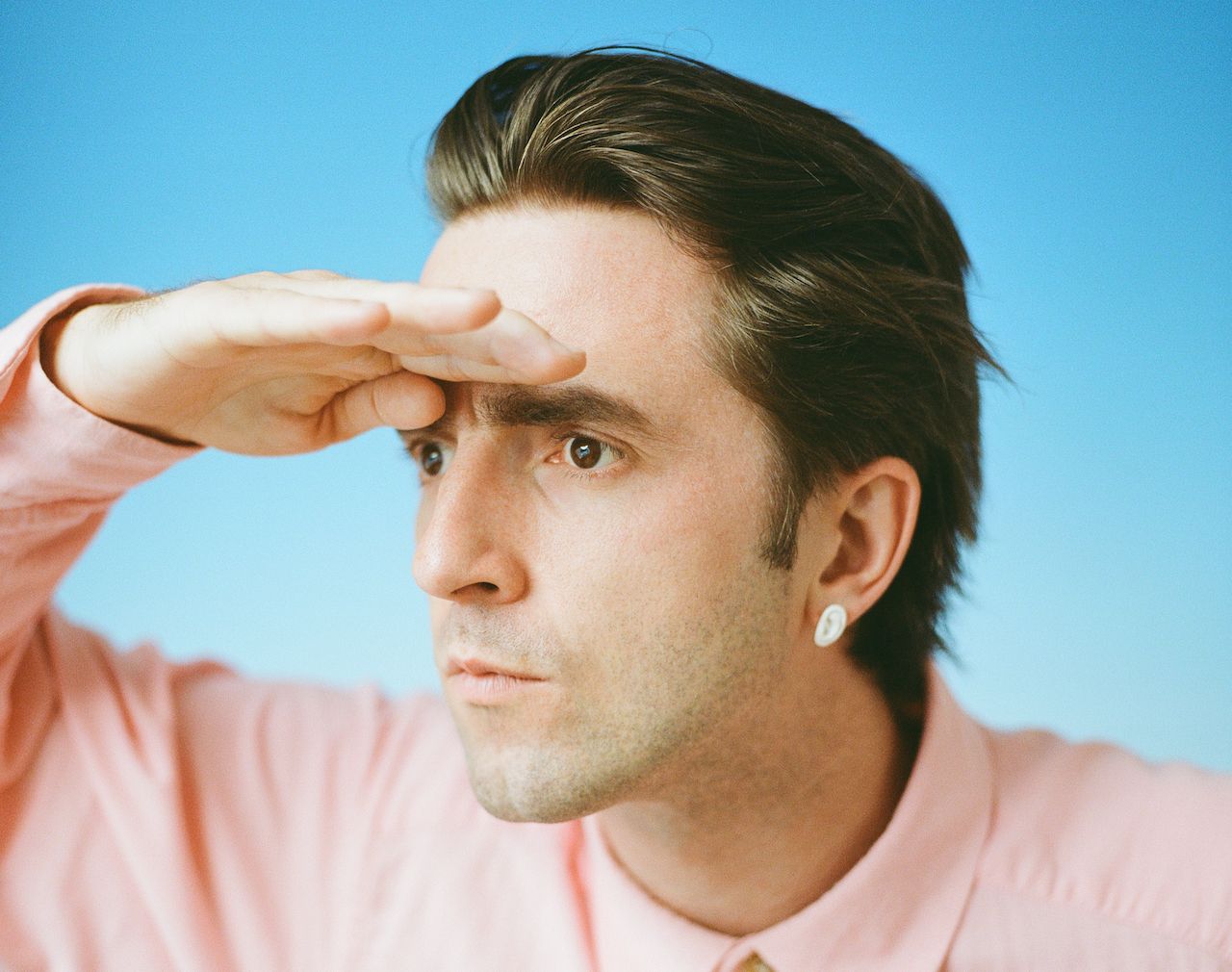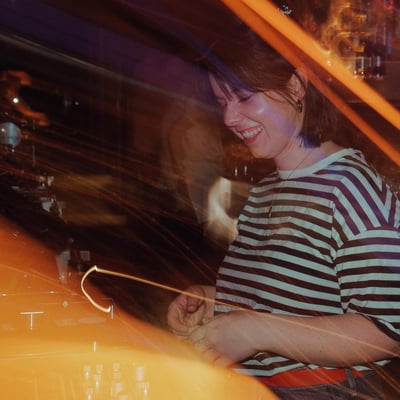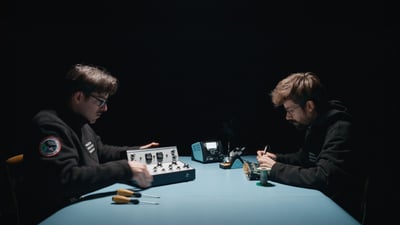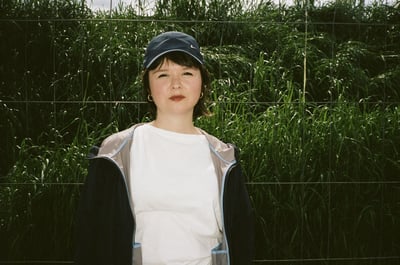Ethimm on his new album and why he’s experimenting with NFTs
The Zurich-based singer and producer Ethimm has just returned from an extended stay in Athens, where he released his self-titled debut album. In addition to a limited edition vinyl, he also made an NFT and we wanted to know more about it.

You recently released a new album. What can you tell us about it?
Ethimm is my self-titled debut album. It’s my flirtation with disco, dub, new wave and left-field pop, all in the spirit of balearic. The record delivers a bunch of snapshots of a hopelessly romantic love life and I’m quite happy how it turned out. It’s definitely a listening record as I made it throughout most of the pandemic when dancing wasn’t a thing, but don’t sweat, the dance floor roots are audible here and there nonetheless. I’m also super proud of the cover art, a sculpture made by renowned Ghanaian coffin artist Paa Joe. The vinyl pressing had some hiccups, but it should be in stores shortly. We made a nice video to accompany the first single, Sunday, which is available online.
You launched an NFT with your album. Why?
First off, I like experiments. My friend Kry helped me design a custom Winamp skin, a video of which we are selling as an NFT on Opensea. You can buy it on Opensea or download free to use at the Winamp Skin Museum. I’ve used a myriad of different formats to listen to and play music over the last 20 years and I felt it’d be fun to create something old-school but digital. Winamp skins totally fit the bill.
Secondly, I’ve been into crypto/web3 (which NFTs are a part of) for a couple of years now and the digital revolution that is happening will absolutely change the world, most likely for the better, especially for people who create. The concept of digital ownership is still a strange one to wrap your head around. I even wrote a small piece on why I think web3 (aka crypto) is important.
Third, I like the immateriality of an NFT. Immateriality and ephemerality are what conceptually attracts me to music in the first place. I prefer experiences and ideas over stuff. So instead of making my merch another band t-shirt or poster, I figured why not make something that resides in your phone and doesn’t clutter up your space.
Can you explain what an NFT is?
Simplified, an NFT is a file you can own. Let that sink in, because it’s the opposite of what we are used to. We’re used to copy/paste to infinity at zero additional costs. We’re used to filesharing, streaming, and posting to Instagram. We’re basically used to free shit when something comes in the format of a file. But those files are not free to make. My album, not including my own labour and studio, probably cost more than 10’000 swiss francs to finalize – excluding the record pressing.
A record used to cost 20 swiss francs, now it’s freely available, mostly due to how market mechanics evolved. NFTs, bring us to a new step in that evolution. Obviously, no one knows where this all will lead, but I’m excited to find out because I think good art is inherently valuable. Some songs move you, some texts help your thinking, some films entertain or educate you. New revenue streams for those that create these things can’t hurt.
But back to NFTs: Part of why owning a file is impactful is because files are programmable. You could for example program royalties into an NFT (Catalog does this). As the revenue from my music tends toward zero because streaming only generates real money if you have tens or hundreds of millions of streams, selling music as an NFT quickly becomes a very interesting alternative. On top of the new revenue stream, an NFT could also be an access key to something like a DAO (Decentralized autonomous organization).
Holly Herndon for example is doing extremely interesting stuff with the Holly+ DAO. Owning one of their NFTs gives you membership in the DAO, which in turn entitles you to a revenue share of the songs in the DAO. I see it like this: Basically all your likes and follows and listens that used to evaporate into a big advertising machine called Meta or Spotify, can now actually be used by you as a fan and an artist to gain control over your relationships. It’s a huge game-changer.
What fascinates you about NFTs?
Currently, most things I do online are not mine. All the profiles I use (Instagram, Bandcamp, Soundcloud etc.) are rented, not owned. Let’s say I currently have 1000 fans on Instagram, some 600 listeners on Spotify, maybe 200 on Apple, 350 on Soundcloud and say 140 people who bought something on Bandcamp. There is no way to consolidate all these people into one fanbase and send them consistent messaging. All the interactions with those people belong to each individual platform rather than to me. If Instagram decides to kick me out or go out of business, all the work I’ve put into my profile is gone and I have to start from zero.
That actually happened to a bunch of people who used Myspace back in the day. A lot of relationships were built on Myspace but when it shut down, everyone lost their contacts. Web3 changes that. Anything I do with my Ethereum address is logged and publicly accessible in a transparent way. I have one account, not 35 different logins and all the interactions I have are attributed to me, not to Meta or Google. It’s simple: You can finally own yourself online and not get pimped out by others.
«I like to lose myself in music, literally, and part of that is having a good listening setup.» – Ethimm
Would you say you are someone who got his head around NFTs and the technology behind it?
I put a lot of time into keeping up with what’s going on with NFTs, web3 & the general development regarding cryptocurrencies. I have a decent overview and a basic, non-technical, understanding. But to be honest the space moves so fast and so many things happen at the same time that it’s quite the challenge to keep up. Nonetheless, I think it's super important to think about this as there are some large structural issues with the way the internet is organised today. It also feels like in the last couple of years there was a lot of talk about taking agency, both as an artist and more broadly as a human being. Web3 is the digital embodiment of that. You can take responsibility for yourself and your actions and become your own agent. NFTs are just a natural extension of that.
You were away for a few months. Where have you been and what have you been doing?
I spent some time in Athens, wrote some new tunes and spent a lot of time on Twitter. Part of it was a personal experiment and part of it was technical, as I only took a laptop and a couple of small speakers along. Not having access to my studio and equipment did change my approach to composition and yielded some interesting results too. I did however come to the conclusion that working without big speakers is simply not as fun. I like to lose myself in music, literally, and part of that is having a good listening setup.
Where are you heading and what is your next project?
I have some really nice remixes for the album coming up. Prins Thomas, Gabe Gurnsey (known as part of Factory Floor) and the inimitable Fuga Ronto all lent their magic touch to some of the album’s tracks. And then let’s see, I might drop something for the two-year anniversary of the pandemic in march and maybe an EP later this year.
Q&A by Dominik André and Demian Till.


